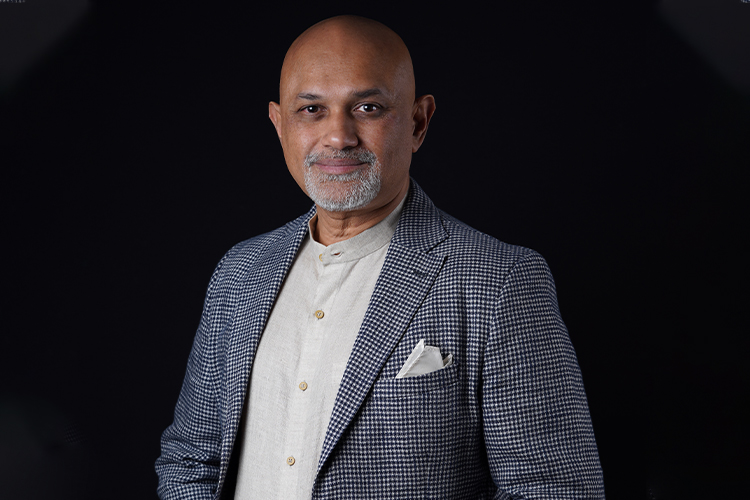

The city’s real estate transformation is not incidental—it is intentional, data-driven, and globally benchmarked, writes Real Estate Management Expert and 2024 President Community Associations Institute (USA) Prof. Jeevan D'Mello
April 24, 2025 | Jeevan D'Mello | UAE | Developers

Dubai’s real estate sector has often captured global attention for its dramatic growth, architectural ambition, and investment appeal. Yet, what we are witnessing in 2025 is not merely another surge, but a structural transformation. Fueled by regulatory foresight, technological integration, and shifting investor priorities, Dubai is repositioning itself as one of the world’s most resilient and future-ready real estate markets.
Aligned with the Dubai Real Estate Sector Strategy 2033, D33 Economic Agenda, Social Agenda 33, and the visionary Dubai 2040 Urban Master Plan, the city’s real estate transformation is not incidental—it is intentional, data-driven, and globally benchmarked.
Over the past two decades, Dubai has evolved from a frontier market into a global capital of commerce, tourism, and urban innovation. While the city’s early real estate cycles were driven largely by speculative demand, the current wave is markedly different. Today’s buyers are increasingly end-users and long-term investors. The motivation is not limited to short-term capital gains but extends to quality of life, regulatory security, and access to residency benefits. This shift has prompted developers to reimagine their offerings—not simply as properties, but as holistic living environments. Projects prioritizing wellness, sustainability, community engagement, and smart infrastructure are becoming the new benchmark.
It is not uncommon for rapid growth in any property market to attract skepticism. Headlines speculating a potential “bubble” in Dubai re-emerge with each upward cycle. However, closer analysis reveals that the underlying fundamentals today are far stronger than in previous booms. Unlike earlier phases characterized by overleveraged investors and oversupply, the current market is supported by real demand, diversified capital sources, and increasingly robust regulation. The UAE Central Bank’s mortgage reforms, the Dubai Land Department’s strengthened escrow requirements, and milestone-linked off-plan sales are all designed to mitigate systemic risks. These safeguards reflect a deliberate move towards a more sustainable, transparent, and investor-protected environment.
One of the most significant developments reshaping investment access is the integration of blockchain technology into real estate transactions. The Dubai Land Department, in partnership with the Virtual Assets Regulatory Authority (VARA), has initiated the pilot phase of its Real Estate Tokenization Project—an ambitious plan to digitize property ownership through tokenized assets. This innovation enables fractional ownership, allowing multiple investors to co-own a property through blockchain-based tokens. Forecasts suggest this market could reach AED 60 billion by 2033, potentially accounting for 7% of total property transactions. More importantly, it opens the door for a new class of investors—those previously deterred by high capital requirements—to participate in one of the world’s most sought-after real estate markets.
Parallel to technological advancements, legislative reforms have further expanded the accessibility of Dubai’s property market. The enhanced Golden Visa framework now provides clearer pathways to long-term residency for property investors, reinforcing Dubai’s appeal as a base for global citizens. Furthermore, the recent expansion of freehold zones—most notably along Sheikh Zayed Road and in Al Jaddaf—allows foreign investors to acquire real estate in previously restricted prime locations. This strategic liberalization is expected to unlock new segments of demand, particularly in the luxury and ultra-prime categories.
Another pillar of market maturity is data transparency. The introduction of the Smart Rental Index—an AI-powered platform launched by the Dubai Land Department—equips landlords, tenants, and institutional investors with real-time insights into property valuations, rental yields, and asset quality. By standardizing data and offering predictive insights, this initiative reduces information asymmetry and allows for more informed, data-driven investment decisions. Over time, it is expected to not only enhance investor confidence but also create a more efficient rental market in which quality properties command justifiable premiums.
Mortgage regulations introduced in 2024 now mandate upfront payment of brokerage and title transfer fees, increasing initial acquisition costs but also deterring overextension and impulsive speculation. In parallel, reforms in the off-plan sector require developers to meet higher escrow thresholds, demonstrate construction progress before launching sales, and offer refund guarantees in the event of project delays or cancellations. These measures align the interests of all stakeholders—developers, buyers, and regulators—towards long-term success and risk minimization. Notably, the off-plan segment, despite these stricter controls, saw a 40% year-on-year sales increase in 2024, indicating strong market trust.
Dubai’s real estate market is no longer defined by volatility. It is defined by resilience, inclusivity, and innovation. Whether through tokenized ownership models, AI-led valuation systems, or policy reforms designed for global mobility, Dubai is architecting a new model for urban investment. In this context, the question is no longer whether the market is in a bubble—but rather, how investors can align with its long-term trajectory. For those seeking a regulated, digitally enabled, and future-forward investment ecosystem, Dubai remains not only relevant but ahead of the curve.
About the Author:
Prof. Jeevan D’Mello, a US-certified real estate management expert and architect, is a leading authority in real estate in the Middle East. Known as the 'Father of Community Management' in the region, he helped establish Emaar’s community division, including Burj Khalifa and set up Nakheel Community Management. He advises top developers across the UAE, Bahrain, KSA, and Spain, and served as the first International President of the US-based 50,000-member strong Community Associations Institute (CAI).
For more Dubai real estate news and Dubai community management news, follow us on LinkedIn